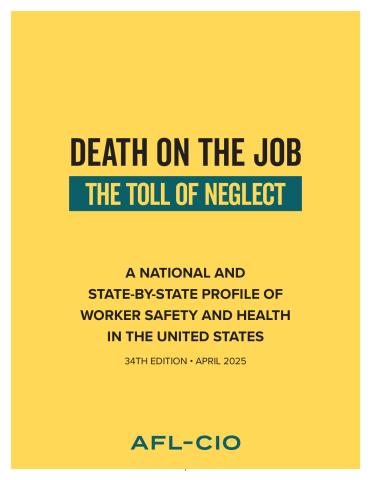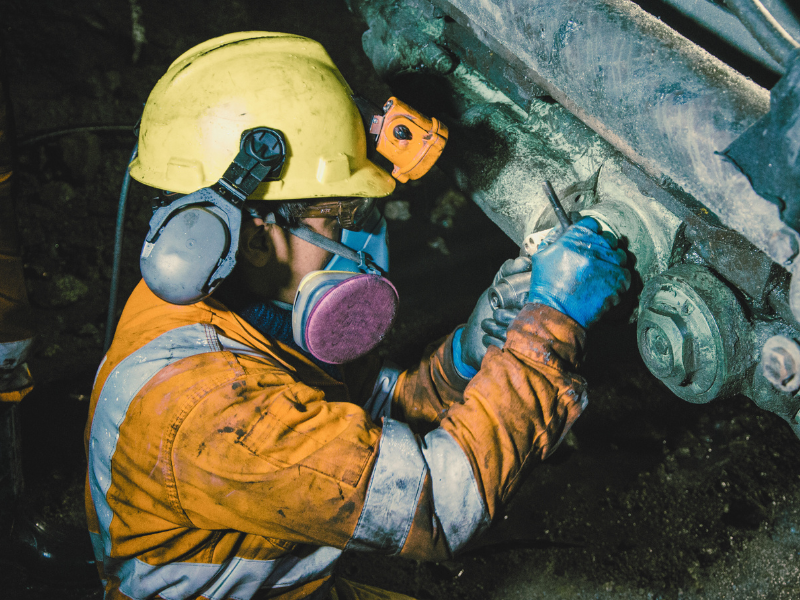AFL-CIO President Liz Shuler delivered the following remarks by video for the AFGE Veterans Affairs Council Health and Safety Conference:
Hello everyone. I’m Liz Shuler, President of the AFL-CIO. I’m thrilled to be joining you—even if it is by video.
I’d like to thank President [Everett] Kelley and Secretary-Treasurer [Eric] Bunn and Vice President [Tim] Snyder for their leadership of this vibrant union during these trying times.
And to Alma [Lee] and the entire NVAC team for your deep commitment to the 120,000 employees who support America’s veterans in every possible way.
And to everyone who put in the hard work to make this conference possible. Thank you. I like how this conference is joint labor-management. Because no matter if you’re from management, or the union, everyone has a vested interest in the health and safety of our veterans and making sure the patients and clients get the attention and care they deserve.
Coming together like this shows our commitment to the common good, and that we’re united and laser-focused in making life better for working people.
Because we have to be. We’ve been through a lot… economic and environmental disasters… racial trauma and violence… and a pandemic that has killed nearly one million Americans and is still a huge presence in our lives.
And workers… especially our health care workers… have been carrying America through these challenging times…
Healing the sick… caring for the elderly and our veterans… and keeping all of us healthy.
And have been doing it against all odds.
Thinking back to those early stages of the pandemic when health care workers didn’t have the most basic PPE… showing up to work in garbage bags and wearing homemade masks and face shields – it’s hard to believe.
The lives of working people have been on the line.
We’ve been thanked. We’ve been deemed essential. We’ve been called heroes.
But what we want is a safe job!
Every working person has the right to come home alive at the end of our shift and free from injury and illness. This is a fundamental right and a core union value.
But so many workers continue to be placed in harm’s way because employers refuse to follow the rules and keep us safe.
And it’s not just COVID.
Violence in the workplace has reached epidemic levels, especially for health care and social service workers.
You all know the numbers. Nurses and medical assistants… social workers and emergency responders suffer more than 70 percent of all workplace assaults. And women are at particular risk… suffering two out of every three serious workplace violence injuries.
And short staffing only exacerbates the risk of being seriously injured on the job, and the ability to care for patients.
And it is only getting worse.
Nurses are leaving their profession at alarming rates… a profession they love. Because their workplaces are not safe and they’re burnt out. Six out of 10 frontline healthcare workers say the pandemic has had a negative effect on their mental health.
They’re tired of working the long and taxing shifts… Tired of not getting the resources they need to give the care their patients deserve.
And as a result, patients suffer. Because a poorly staffed and anxious and exhausted workforce leads to poor health outcomes for patients.
The Biden administration has made great strides to slow the spread of Covid, and has put measures in place to protect workers.
But the emergency OSHA protections that healthcare workers had from Covid have been stripped away and now we, the labor movement, are fighting to make those permanent.
Just last week, OSHA announced they are taking public comment on a permanent standard to protect health care workers from Covid. Unions made that happen.
This pandemic is far from over and we have to keep fighting for stronger worker protections from COVID-19 exposures and all infectious diseases.
And we have to keep fighting for stronger protections from workplace violence.
We’ve seen in a number of states, including California and New York, they’ve adopted workplace violence prevention standards or laws, but there aren’t enough states doing this… so we are pushing the Congress to pass a federal standard. These are common sense standards that would require health care and social service employers to protect their workers from what are often foreseeable and preventable injuries.
It’s the employer’s responsibility to provide workers a safe workplace, and we know unions are the best way to safer jobs… by giving workers a voice at the table on safety, and on scheduling and staffing levels so patients get the attention and care they deserve.
And that includes our veterans. They deserve the best care possible. But they aren’t receiving it because VA nurses, doctors and other medical professionals… many of whom are veterans themselves… aren’t allowed to collectively bargain for the resources they need… and the pay and benefits they have earned.
Congressman Mark Takano of California and Senator Sherrod Brown of Ohio have a bill that would fix this… the V-A Employee Fairness Act… and we’re pushing to get that to a vote too.
The labor movement grew out of the fight for safer working conditions… and that fight continues today.
We are on the picket lines… we are organizing in our workplaces and we are organizing for stronger laws and protections… we are organizing for safe jobs!
Workers Memorial Day is coming up on April 28th, where every year… we remember the workers who needlessly have been killed, injured or made ill because of their jobs, and we recommit ourselves in the fight for safe jobs.
A day where we… as Mother Jones said… “mourn for the dead and fight like hell for the living.”
On April 28th and every day.
Let’s show all working people the power of coming together in their unions and in partnership with allies and employers – that when we’re united for a safer workplace… for better wages and conditions on the job...that means a better future for everyone.
Have a great conference and I can’t wait to see where we go from here.
Thank you.



